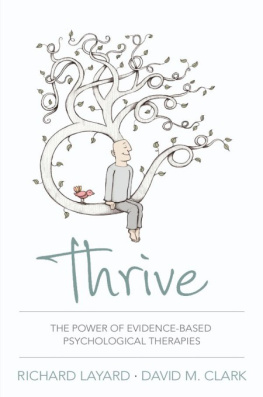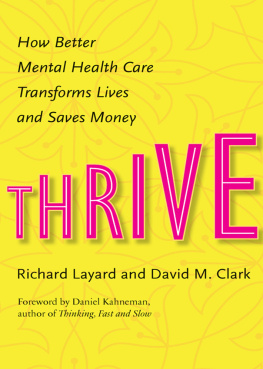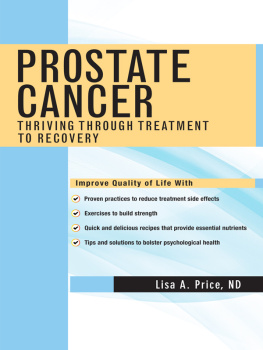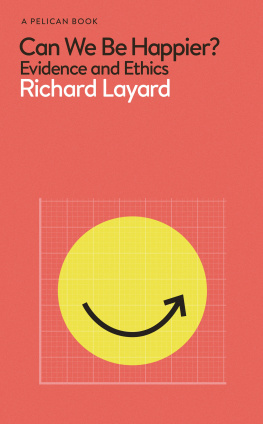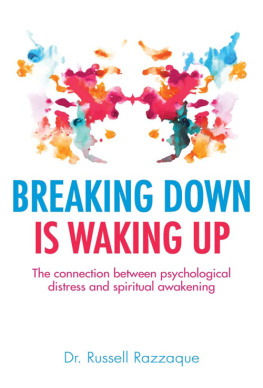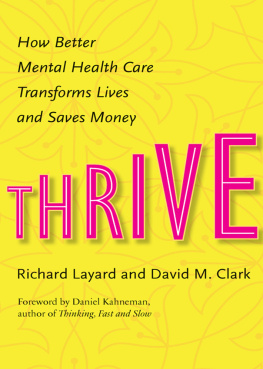One of us is an economist and the other a clinical psychologist. We met ten years ago and at once began discussing one of the great injustices of our time. If people are physically ill they generally get treated, but if they are mentally ill they usually do not. Yet really good treatments exist.
So together we lobbied the British government until it launched its landmark programme, Improving Access to Psychological Therapies. Since it began, we have both been advisers to the programme. It still has a long way to go, but it has already changed the lives of hundreds of thousands of people. According to the journal Nature it is world-beating, and countries around the world are already looking to it for guidance.
This book draws on our experience of making the case for mental health and of constructive policy development. It is also the indirect product of a whole community of people who have been struggling to bring evidence-based psychological therapy to the millions of people who need it.
Our book sets out the nature and scale of the problem, the case for action, and the outline of a solution. People with mental health problems should have the same access to treatment as people who are physically ill. It is morally right that they should, and it is also vital for our economy and for the functioning of our society.
In the last fifty years there has been massive social progress on many fronts. Yet much misery remains, because we have failed to address the inner psychological sources of distress. That is now a central challenge for the twenty-first century.
1.
Whats the Problem?
I was much too far out all my life
And not waving but drowning
Stevie Smith, Not waving but drowning
Dennis Stevenson is a well-known British businessman, and has occasional bouts of depression. This is how he describes them. I once broke my leg in ten places. As I was taken to hospital, someone shut the door on my leg. You can imagine the pain. But I can tell you the pain of depression is many times worse: it is excruciating.
Mental pain is as real as physical pain. It is experienced in the same areas of the brain as physical pain and is often more disabling. Yet these two types of pain are not treated equally. While nearly everyone who is physically ill gets treatment, two in three of those who are mentally ill do not. If your bone is broken you are treated automatically, but if your spirit is broken you are not.
This is a shocking form of discrimination, which occurs in every healthcare system in the world. It is particularly shocking because we have very good treatments for the most common mental health problems, which are depression and crippling anxiety disorders. The treatments modern psychological therapy and drugs when appropriate are not expensive. And the economics are striking.
Treating mental health problems produces extraordinary savings fewer people on welfare benefits, and fewer people being treated for physical illnesses made worse by mental illness. So on any reasonable estimates the treatments pay for themselves. They cost society nothing. And yet they are provided to under a third of those who need them. That is a great injustice and a gross inefficiency. And it is the main reason we have written this book the pain of untreated mental health problems, and the fact that they can be treated at little or no cost.
There is also a wider issue. The last fifty years have seen enormous progress in advanced societies less absolute poverty, better physical health, more education, and better housing. And yet in the USA, Britain, and many other countries, there is almost as much misery as there was fifty years ago at least as many social problems and more family conflict, more crime, and more anti-social behaviour. Dealing with the externals of income, education, physical illness, and housing has not been enough to produce happier or more orderly lives. We have left something out the inner person. Mental health is something that requires deliberate cultivation and expert help when it goes wrong. If our society had better mental health, we should all gain. That is the second reason we have written this book: the huge social cost of mental illness.
The facts we lay out are in many cases quite remarkable indeed after many years in the field some of them still amaze even us. So here are the main questions we investigate.
How many suffer?
Mental illness is the great hidden problem in our societies, so most people are amazed when they hear the scale of it. In Britain today one in six of all adults suffers from depression or a crippling anxiety disorder. The same is true in the USA and in continental Europe.
Roughly a third of families currently include someone who is mentally ill. So when people ask us what we work on and we say mental health, the reply is almost always, Oh, my son , or my mother , or sometimes, I have to admit that I but then usually, And please dont tell anyone. (This is particularly true when its a politician.) In America, more people commit suicide than are killed in road accidents.
Mental illness is not only common, but it can be truly disabling through its impact on peoples ability to care for themselves, to function socially, to get around, and to avoid physical and mental pain. In that sense, depression is on average 50% more disabling than angina, asthma, arthritis or diabetes.
So here is an extraordinary fact. When the World Health Organization measure the scale of illness and allow for its severity, they find that in rich countries mental illness accounts for nearly 40% of all illness. By contrast, stroke, cancer, heart disease, lung disease, and diabetes account for under 20%. The chart on the next page says it all.
Mental illness is extremely difficult to adapt to much more so than most physical illness except for unremitting pain.is bad for taxpayers, since mental illness accounts for nearly half of all the people who live on disability benefits.
Given all this, you would think that mental illness would be high on the priorities of every governments department of health. But not so. In 2007 we met with Britains new Secretary of State for Health after he had been in his job for three weeks. At the end of our meeting he said, Something has struck me. Ive been in post for three weeks and gone to about forty meetings, but I have not so far heard the phrase mental health.
The situation is similar with employers. In January 2012 the World Economic Forum was having its usual snow-bound conference in Davos. This included a meeting of the Workplace Wellness Alliance a group of sixty of the worlds most enlightened employers. The meeting was about the health challenges facing employers, and there were detailed presentations on cardiovascular disease, diabetes, lung problems, cancer, and musculoskeletal issues but there was nothing on mental illness, even though it causes so much sickness absence. People just dont want to talk about it.

